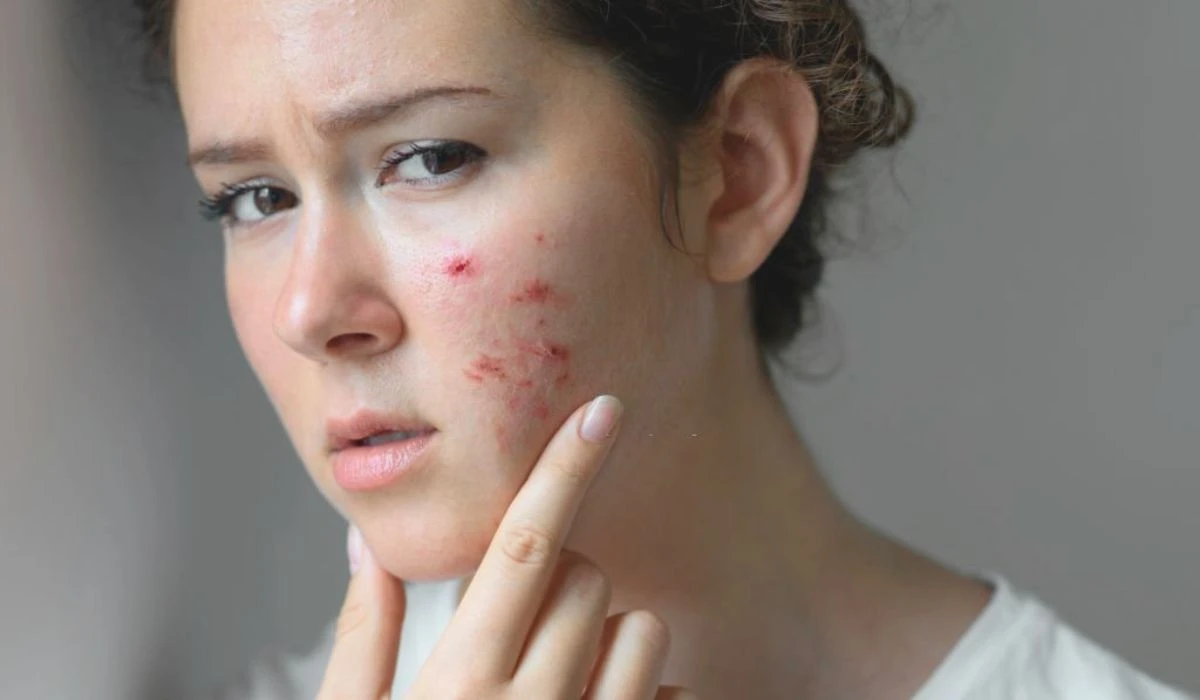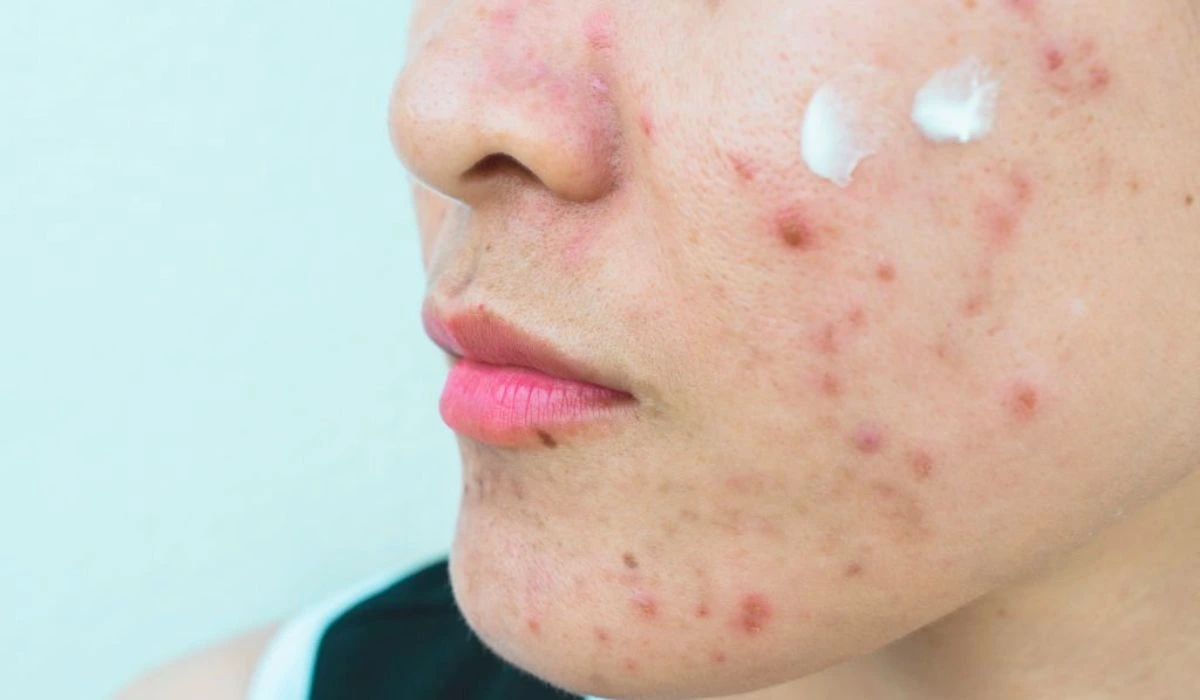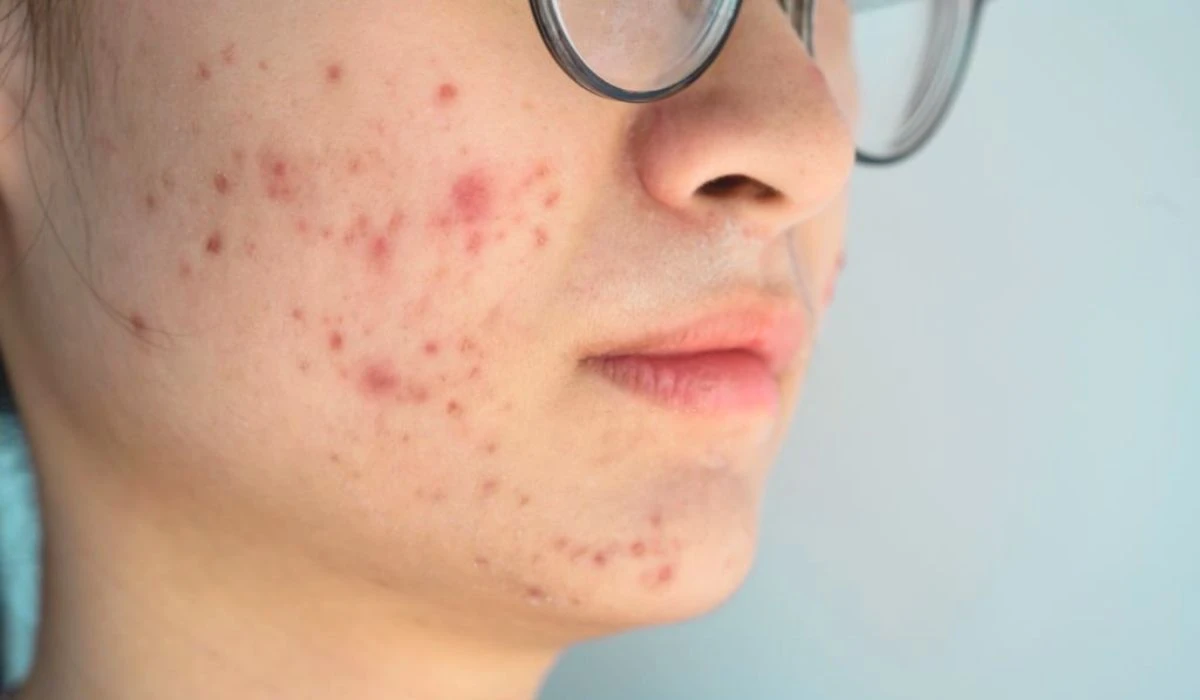The exact cause of rosacea remains a mystery, but genetics, environmental triggers, and abnormal blood vessel function are thought to be responsible. Unfortunately, there’s no cure. But, there are ways to manage it! Avoiding triggers like spicy foods, alcohol, and extreme temperatures can help reduce flare-ups. Plus, skincare tailored to sensitive skin can offer relief.
Don’t let rosacea keep you from living your life to the fullest. Seek professional help and learn how to manage the condition. Take control of your skin and regain your confidence. You’re not alone on this journey!
Understanding The Causes Of Rosacea
To better understand the causes of rosacea, delve into the section “Understanding the Causes of Rosacea.” Discover the factors that can trigger rosacea flare-ups as you explore this comprehensive section.

Triggers For Rosacea Flare-Ups
Rosacea flare-ups can be caused by many factors. These triggers can worsen the condition and lead to uncomfortable symptoms. So, it’s key to understand these triggers for managing and preventing flare-ups.
Some of the common triggers for rosacea flare-ups include:
- Spicy foods
- Hot beverages
- Alcohol
- Extreme temperatures
- Stress
Additionally, skincare products with harsh chemicals or fragrances can also cause a flare-up. It’s best to pick gentle, non-irritating products designed for sensitive skin.
Common Symptoms Of Rosacea
To understand the common symptoms of rosacea, delve into the world of redness and flushing, visible blood vessels, bumps and pimples, and eye irritation. Discover the solutions for each symptom as you explore this section on how to naturally treat rosacea at home.
? Redness And Flushing
When your face turns a deep crimson and you experience a sudden rush of heat, it’s not just a blush. This symptom, known as “redness and flushing,” is a telltale sign of rosacea. Here are five facts to know:
- Your face may be persistently red or may flush in a bright red hue.
- Many triggers can cause flushing, such as sunlight, temperature changes, spicy food, alcohol, and hot beverages.
- In some cases, small blood vessels may be visible on your skin.
- The redness and flushing typically appear on the cheeks, nose, and central area of the face.
- The symptoms may also affect the neck and chest.
? Visible Blood Vessels
It is key to remember that the blood vessels associated with rosacea shouldn’t be confused with spider veins or broken capillaries created by other causes.
This is because, unlike these other conditions, the enlargement of the blood vessels in rosacea is connected to long-term inflammation, not damage to the skin.
One of the initial signs of rosacea can be seen in vessels. They could be thin lines or bigger and more obvious vessels. Plus, when the skin is inflamed or has increased sensitivity, these vessels can become more visible.
? Bumps And Pimples
- Red, raised bumps.
- Pus-filled pimples.
- Persistent facial redness.
- Flushing episodes.
- Visible blood vessels.
Severity and presentation may differ, so it’s important to seek medical advice for an accurate diagnosis.
? Eye Irritation
Sensitivity to light and blurred vision can have a big effect on daily routines, like reading or driving. Don’t ignore these symptoms of rosacea – seek medical help soon. If left untreated, eye irritation can even lead to permanent vision loss.
Natural Home Remedies For Rosacea
To effectively treat your rosacea naturally, implement diet and lifestyle changes, utilize herbal remedies, and establish a suitable skincare routine. In this section, we will explore the sub-sections: the role of diet and lifestyle changes, the effectiveness of herbal remedies, and the importance of a proper skincare routine.

✅ Diet And Lifestyle Changes
Making changes to your diet and lifestyle can improve rosacea symptoms. Here are some strategies:
Diet:
- Avoid trigger foods.
- Stay hydrated.
- Eat anti-inflammatory foods.
Lifestyle:
- Manage stress.
- Exercise regularly.
- Protect skin from sun exposure.
✅ Avoiding Triggers
Manage rosacea effectively by avoiding triggers that worsen the condition. Here are key points:
- Limit sun & extreme temperature exposure.
- Avoid spicy foods, hot drinks & alcohol.
- Use gentle skincare without harsh chemicals.
- Control stress with relaxation techniques.
- Exercise carefully to avoid sweating.
- Stay away from fragrances & certain fabrics.
✅ Anti-Inflammatory Foods
Adding anti-inflammatory foods to your diet can help reduce inflammation and alleviate rosacea symptoms. Try incorporating fatty fish, leafy greens, turmeric, berries, ginger, and green tea into your meals for lasting relief. These nutrient-rich options will not only control your condition but also contribute to healthier skin and better well-being. Start making small changes today for big results tomorrow! Worrying won’t make it go away – but these natural remedies might!
✅ Stress Management Techniques
Managing stress is essential for anyone with rosacea, as it can cause flare-ups and worsen the condition. Different stress management techniques can help lessen symptoms and increase overall well-being.
✅ Herbal Remedies
Tea tree oil can help reduce inflammation and redness. Licorice extract can soothe irritated skin. Aloe vera gel has cooling properties that can provide relief from rosacea.
Chamomile tea or essential oil can calm the skin and make redness go down. Lavender oil can be applied to the skin to reduce rosacea flare-ups. Ginger is good for minimizing inflammation.
Other remedies for rosacea include green tea extracts, oatmeal, and calendula cream. Before using any herbal remedy, it is important to do a patch test on a small area of the skin.
✅ Skincare Routine
Professional Skincare Routine:
Having a good skincare routine is important for tackling rosacea. Here are the 6 top steps to take daily:
- Cleansing: Clean your face twice per day with a mild and non-irritating cleanser.
- Moisturizing: Use a gentle moisturizer to keep skin hydrated and shielded.
- Sun Protection: Wear sunscreen with a minimum SPF 30 to protect your skin from UV rays.
- Avoid Triggers: Figure out and avoid triggers that worsen rosacea, such as spicy foods or strong skincare products.
- Calming Agents: Look for skincare products with ingredients like aloe vera or chamomile to cool inflamed skin.
- Gentle Exfoliation: Exfoliate your skin once or twice weekly with a soft and non-abrasive scrub.

